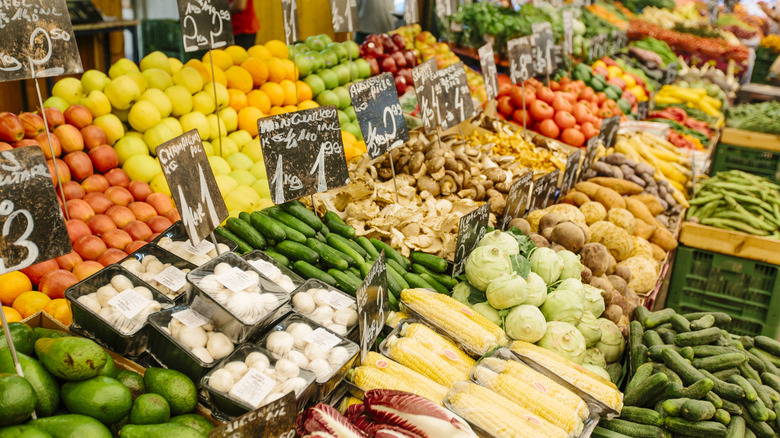Why Restaurants With Small Menus Often Have Higher Quality Food
Stepping into a restaurant and discovering that the menu is actually a hefty, leather-bound tome is an immediate warning that the food likely isn't going to be very good. Just like how seeing pictures on a menu might send you running, an overly long restaurant menu should give you pause.
One of the most significant reasons that you might want to avoid restaurants with lengthy menus is that having such a diverse array of options simply asks too much of the restaurant's cooks. A shorter menu allows the restaurant to specialize and perfect the dishes they make, whereas a menu that tries to do too much is likely to result in a wide variety of average food.
Anyone who has ever eaten a meal at a really good food truck or street food stall knows this principle (or, really, even anyone who has taken a YouTube tour of Asian street food). Someone operating a street food stall or a restaurant specializing in a few select dishes is going to be laser-focused on producing the absolute best version of that food. On the other hand, any cook expected to know how to make, for example, great versions of pasta carbonara, mapo tofu, and California rolls (among other equally diverse dishes) would need to be a special talent. After all, there's a good reason burgers and sushi should never be served at the same restaurant.
Small menus often mean fresher ingredients
The lengthy menu red flag has to do with more than just the breadth of skill of the cooks; It also has to do with the freshness of the ingredients. When a restaurant takes on too many dishes, it becomes increasingly likely that certain items fall through the cracks of diners' choices. And when a menu item isn't ordered often, that can mean that the food sits in the fridge for a long time before being cooked. Now, this shouldn't worry you too much. The pervasive idea that you should never order fish on Monday has been debunked, and most restaurants are very careful about food safety. But despite being safe to eat, older ingredients do lose some of their flavor and quality.
Another benefit of a select menu is that it can push the restaurant to focus on serving only the freshest seasonal ingredients throughout the year. In order to keep customers coming back again and again, restaurants keep their patrons' interest by creating new dishes. In a restaurant with a limited menu, that often means introducing entirely new offerings as the seasons change, allowing chefs to explore novel flavors and concepts while highlighting whatever is freshest and most delicious at the moment.
There are many reasons why a restaurant might choose to offer a limited menu, from focusing on the perfection of a few select dishes to ensuring that only the freshest, local ingredients are presented. Whatever the reason for the restaurant, all you need to know as a diner is that a shorter menu likely means better food.

